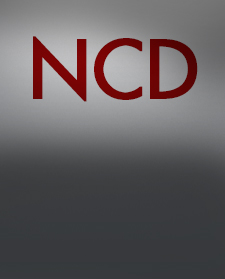Non-Convertible Debentures: Should You Invest In NCDs? – Axis Direct
AxisDirect-O-Nomics
Apr 16, 2019 | Source: www.financialexpress.com

Pros & Cons Of NCDs
NCDs are an ideal alternative to bank fixed deposits and debt funds provided they are issued by reputed companies and have higher credit rating.
It is difficult to ignore non-convertible debentures (NCD) if you are looking for a fixed income as these instruments offers a lucrative rate of return compared to fixed deposits. There are many NCDs in the market which are giving an attractive rate of return, higher than that of bank fixed deposits and even debt funds.
Let us see what NCD is and what are the risks associated with the same.
What is NCD?
Basically, debentures are an acknowledgment of debt. In other words, you as an individual investor are lending money to the company. The company is promising to pay you a fixed interest and return the principal after a certain specific time period. The company may be seeking funds for its business expansion, to fund its growth, diversification, acquisition, etc. This type of debentures cannot be converted into equity shares of the issuing company.
Types of NCDs
Purely from a collateral point of view, NCDs can be secured or unsecured. Secured debentures are those instruments for which specific assets are being given as collateral. By any chance, the company goes bankrupt or something went wrong, then the company will sell such specific assets and repay the bond holders.
Unsecured debentures have no specific asset as collateral. Suppose the company files for bankruptcy, then the bond holder will get the money only when all secured debtors are paid back. Thus, unsecured debentures are riskier than that of secured and so they offer relatively higher rate of interest. The NCD issues are mandated to be rated by two different credit rating agencies.
Interest and tax implications
Interest on NCDs is paid on different time periods such as quarterly, half-yearly or annually. But, it should be declared upfront to the investors. Sometimes, companies can issue bonds which have an option of cumulative interest in which case interest is cumulated and paid at the time of maturity. When nothing is explicitly mentioned, the interest is payable semi-annually.
Interest income on NCDs is taxable as and when interest accrues and is due and it will be treated as income from other sources and treated accordingly. Similarly, if the holding period is less than one year or more and if you earn any capital gain by selling it in the secondary market, it will be taxed at the rate of 10% without any indexation. If your holding period is less than one year, then any gain made from sale will be taxed as per your tax slab.
To conclude, it is always a good strategy to manage liquidity and risk. From that point of view, non-convertible debenture is an ideal alternative to bank fixed deposits and debt mutual funds, provided they are issued by reputed companies and have higher credit rating.





 INDIA
INDIA NRI
NRI



